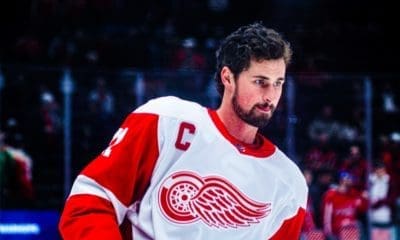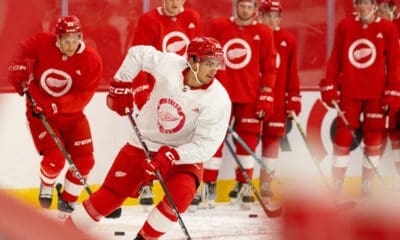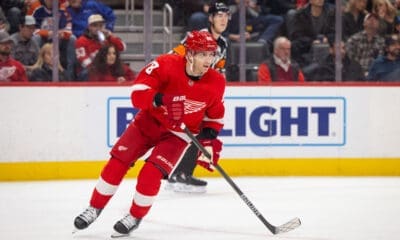Detroit Red Wings
Deputy Commish says Swedish deal won’t have “major impact” on NHL

NHL Deputy Commissioner Bill Daly told Detroit Hockey Now the league’s new player transfer agreement with the Swedish Hockey Federation won’t undermine the Detroit Red Wings or other NHL teams.
“I don’t expect this to have a major impact on the way our Clubs deal with their European Players,” Daly said.
Reports say the new eight-year deal includes a provision that if a player is a draft selection after the first round, and is under age 24, he must be offered to his Swedish team before his NHL club can send him to the American League. The age used to be 21.
Daly said NHL teams are not allowed to offer “anything of value” to the Swedish team to waive its rights under the agreement.
“But there is nothing that would preclude an NHL Club from consulting with the Swedish Club in advance to understand its intentions,” Daly said.
Johansson ‘Grandfathered’
Daly said new standard is only applicable to draftees signing their contract after the agreement’s effective date. That means it “grandfathers” players drafted or signed last year and before.
For example, defenseman and second round pick Albert Johansson (21) ended up signing with the Red Wings last summer. He was returned on loan to Swedish club Farjestads BK Karlstad. Johansson can attend Detroit’s training camp in the fall. His assignment to Grand Rapids could follow if that is what GM Steve Yzerman wishes.
Albert Johansson scored his first SHL playoff goal today. Färjestad lost the game but still leads the series 3-2 #lgrw https://t.co/i9mgz1i4Vw
— IcehockeyGifs (@IcehockeyG) April 9, 2022
“Based on your description of Albert Johansson, which I haven’t double checked, (he) wouldn’t be implicated by the mandatory return provision in either Agreement. He was already loaned back to his Swedish Club last season,” Daly said.
Daly said the agreement addresses the Swedes’ concern about the impact player departures have on the country’s professional leagues.
“European Clubs don’t want to lose rights to players who aren’t ready to play in the NHL,” Daly said. “We have addressed the issue a number of different ways over time. But it’s always been a “balancing act”, where we obviously try to maximize NHL Club rights.”
Daly said in this negotiation, the requests on the other side of the table included:
(1) extending the mandatory return provision for two years (instead of one);
(2) extending the mandatory return provision to all Draft Picks (not just Round 2 and higher picks).
“Ultimately we agreed to extending the age window from 22 to 24,” Daly said. “This was a negotiation and I view the concession to be a negotiated trade-off for other things we achieved in the Agreement.”
Swedish Connection
The Red Wings historically have not minded leaving players in Sweden to develop. Nicklas Lidstrom was drafted in 1989 and then played two more seasons in Sweden before joining Detroit’s team. Henrik Zetterberg was drafted in 1999 and also played two more seasons in Sweden before joining Detroit.
But the Red Wings prefer their players to have American League experience. Moritz Seider played in the AHL before going to Sweden.
“The AHL is a great level for guys to really prepare themselves for the NHL,” Detroit coach Jeff Blashill said. “At the American Hockey League level, they generally can’t get away with the same things that they could either in Europe, in junior, or in college. They have to learn how to be more effective in the tight kind of checking style. Teams and players are very even and you just don’t get away with as much.”
Blashill said the AHL can be particularly beneficial for European players because the European game can be a “little bit different.”
“Just getting adjusted to the ice, the lack of time and space,” Blashill said. “The heaviness of the forecheck is probably one huge difference. (That’s) from a forward perspective of how hard you have to forecheck in the NHL. That can be a real positive. In Europe it isn’t necessarily that way. And from a defenseman’s perspective, how important it is to be put under that level of pressure. The forecheck-type pressure in the American League… I think for most guys it’s critical they spend that time in the American League.”
















